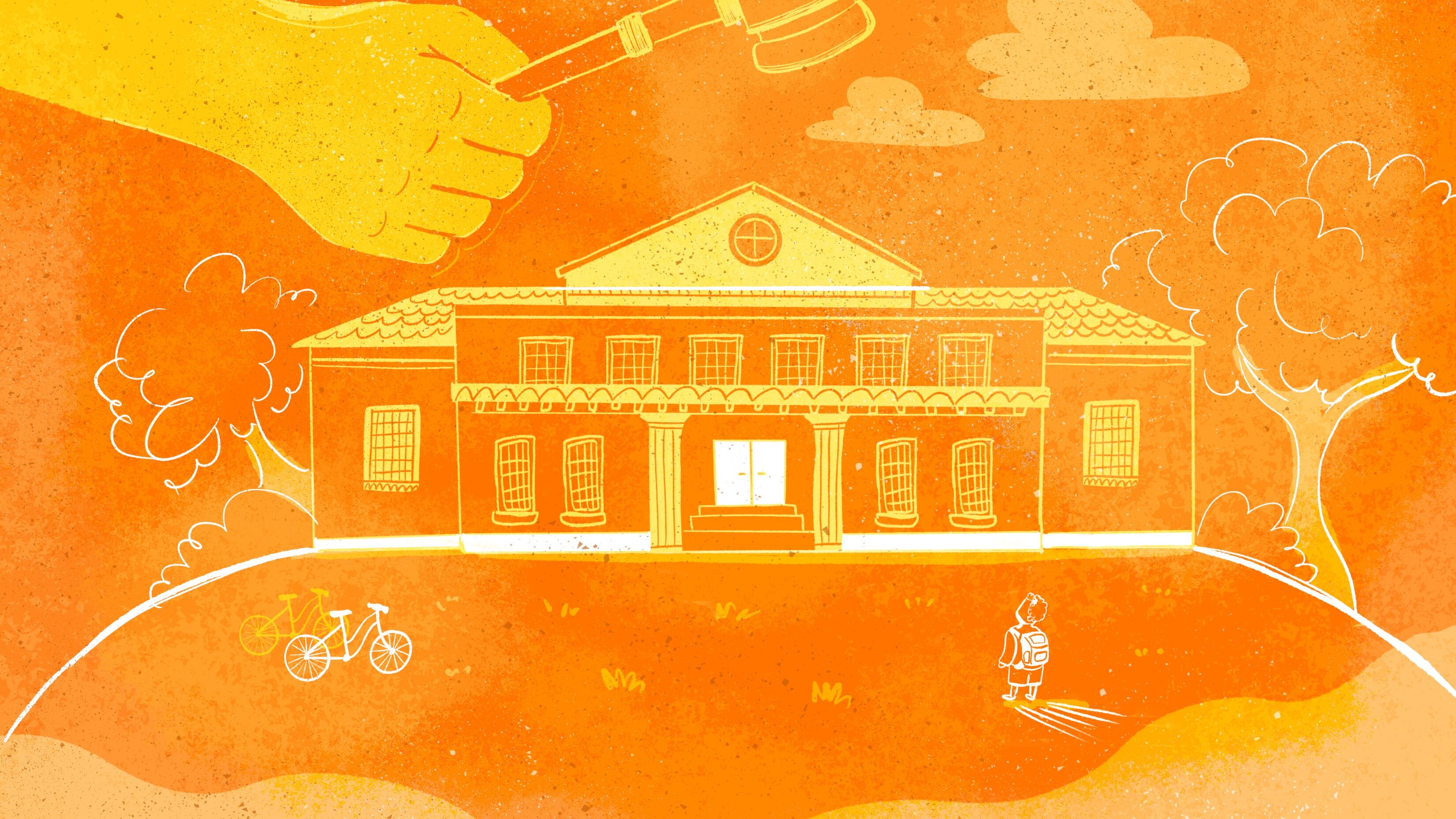Students returning to nine elementary schools in East Portland will see a new face this fall. That person’s job is to keep kids from being sent home.
Every elementary school in the David Douglas School District has added a new staffer called the assistant principal of restorative practices. Their job? To get student retention up by finding ways to talk with, rather than punish, kids who misbehave.
The assistant principals will focus in particular on students of color who have historically been more severely disciplined in schools. The aim is to end racial disparity before it begins to show up in data during high school.
“If a student doesn’t behave, we send them home. But in any other scenario, if a kid doesn’t know how to read, we teach them how to read,” says Florence Protopapas, assistant director of student services for the district. “We want to bring that into behavior, as well. Ultimately, our end goal is to get all of our kids to graduation.”
David Douglas, a district in East Portland with a diverse, lower-income population and one-fifth the students of Portland Public Schools, has long been a bright light in public education in Oregon. Sixty-eight percent of students are not white and, in 2020, 70% qualified for free or reduced-price lunch. A decade ago, WW wrote about how David Douglas High School students had exceptional outcomes, like a 69% graduation rate—with a student body that spoke 55 languages (“Miracle on 135th Avenue,” WW, Feb. 12, 2013).
Now, emerging from a pandemic that ravaged the lives of just those kids, the district is again seeking to be a trailblazer. No other school district in the state dedicates an assistant principal solely to the task of reducing racial disparities in school discipline, says Vanessa Crawley, soon to be assistant principal at Mill Park Elementary.
Even so, suspension data provided to WW by the district shows that in the 2018-19 school year, Black students received 45% of all suspensions despite making up only 19% of the student body. At David Douglas High School that same year, Black students made up about 14% of the student body but accounted for 39% of suspensions.
And the disparities are just as bad across Portland: In 2019, Black students at Portland Public Schools accounted for 46% of major discipline incidents reported. White students made up only 5%.
Often, disparate punishment between BIPOC and white kids doesn’t show up clearly in the data until middle and high school. The strategy here, Protopapas says, is to quash that disparity early—when kids are as young as 6—rather than waiting until middle or high school.
“Our disparities don’t quite show up in elementaries, but they do in other levels,” Protopapas says.
The David Douglas School District was given a big financial boost to reframe school discipline in 2019 with a $2.2 million grant from the U.S. Department of Education aimed at transforming school culture. While the assistant principals are being funded by the district’s general fund, they supplement a districtwide restorative practices training program each teacher will undergo this year. (Much of the training was postponed after COVID-19 closed classroom doors.)
The district is contracting with a Texas-based company for the training, which is a yearslong process.
By state law, only severe incidents in elementary school warrant suspension or expulsion: if a teacher is harmed by a student or administration determines the student is a danger to other students or the school for, say, bringing a weapon to school. David Douglas elementary schools will still follow state law, but the aim is to tackle all the gray areas posed by less cut-and-dried incidents.
For instance, changes will be made to the schools’ “minor” incident systems. In prior years, if students misbehaved in what a teacher deemed a minor incident, the student was sent home with a note that listed the misbehavior. The child would return the slip to the teacher with a parent’s signature.
But this year, the teacher will meet with the student and talk through the incident, reinforcing expected behaviors rather than shaming the wrong behavior. “We’re turning it from a punishment to a conversation, and a reteaching opportunity,” Mill Park’s Crawley says. “The teacher will call a parent and talk through it, too.
Much of this reorientation, she adds, will focus on reeducating teachers and administrators about how different cultures treat discipline and expectations: “BIPOC students are relationally and community oriented. The dominant culture is not. We have a siloed, individual accomplishment style of thinking.”
The aim is to ask both teachers and students to resolve disputes by trying to find a way to live in peace, rather than treating the classroom like a courtroom.
This article was published with support from the Jackson Foundation, whose mission is: “To promote the welfare of the public of the City of Portland or the State of Oregon, or both.”
